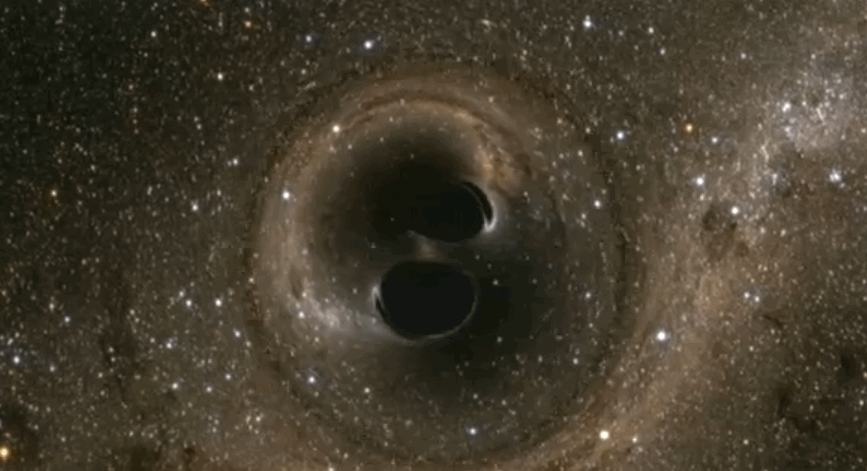
For the first time ever, scientists have witnessed gravitational waves, ripples in space time caused by violent cosmic events, like the explosion of a star or the collision of black holes. Researchers atLaser Interferometer Gravitational-Wave Observatory (LIGO) announced their discovery on February 11, and the results could be the biggest physics news of the century.
But while gravitational waves are getting most of the attention, they are not the only big discovery of the day.
This is also the first time scientists have been able to confirm the existence of binary black holes, two black holes held in orbit with each other. The event that created the gravitational waves we're seeing today are the result of a cataclysmic collision 1.3 billion years ago.
Two black holes were caught in a death spiral, their orbits shrinking as they pulled each other closer. This dance created such tremendous gravitational force that the stars surrounding the black holes appeared to distort, as the light emitted from the collision was bent. The black holes then merged into one, as seen in the GIF below (a visualization):

"What’s really amazing about this is, this is the first time that this kind of a system has ever been seen, a binary black hole merger," said David Reitze, LIGO Laboratory Executive Director, at a press conference announcing the discovery. "It’s proof that binary black holes exist in the universe."
Black holes hold a lot of potential answers, but we still don't know much about them. These new discoveries will help.
"Having gravitational waves as a tool will enable us to study black holes, and black holes hold the key to so many future puzzles in science," Szabi Marka, a LIGO collaborator at Columbia University, told Tech Insider. "We don't actually know what happens around a black hole. We don't know what happens when a black hole meets another black hole. We don't know what happens when a black hole eats something."
Watch David Reitze of LIGO explain what they found below:
Join the conversation about this story »
NOW WATCH: Here’s what the first gravitational waves ever detected sound like